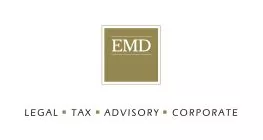Traditionally a captive insurance company is known to be a limited purpose corporate entity set up by a non-insurance parent company and licensed to insure all or some of the risks emanating from the parent's and/or group's business.
Under Maltese legislation, captive insurance companies are referred to as Affiliated Insurance Companies (AICs) and are regulated under a set of tailor made rules.
Insurance Directive 21 of 2003 (now replaced by Insurance Rule 21 of 2007) has considerably broadened the traditional definition of captive insurance by including risks originating with:
- Parent or group companies
- Undertakings having common membership up to the ultimate
beneficial owner level, with the AIC, amounting to at least
51%
- Individuals or other entities having a majority ownership or
controlling interest in the AIC
- Members of trade, profession or industry associations or
organisations insuring risks related to the particular trade,
profession or industry.
It is also possible to structure an AIC as a cell within a Protected Cell Company (PCC). PCCs only apply in the case of the business of insurance. A PCC is a regular company constituted as a cell company which is able to create one or more cells for the purpose of segregating and protecting the cellular assets of the company. The assets and liabilities of a particular cell are segregated from those of other cells and from those of the core. To this end, the creditors of a particular cell have no recourse against the assets of other cells within the PCC.
Insurance undertakings and insurance intermediaries may also take advantage of the single passport regime and upon the fulfillment of the prescribed formalities, passport into Malta or out of Malta from/to an EU or EEA state through the establishment of a branch or by providing services on a cross border basis. Maltese legislation also provides for a company continuation procedure whereby insurance companies resident in a foreign domicile with equivalent legislation can re-domicile to Malta and vice-versa.
AICs benefit from reduced application and supervisory fees and also from a shorter statutory application processing time of a maximum of 3 months.
Furthermore, the Maltese Tax system is a full imputation system that eliminates economic double taxation. Similar to all other Maltese Companies, Captive Insurance companies are taxable at the normal corporate rate of 35 %. However on distribution of Captive Insurance profits, shareholders are entitled to a refund of 6/7ths (30 %) of tax suffered on the distributed profits. This can reduce the tax burden to 5 %. This means that while the company itself receives no tax benefits its non-resident shareholders are entitled to a tax refund that is not taxable in Malta. In addition Malta has concluded double tax treaties with over 52 countries.
Malta is an ideal captive jurisdiction due to the fact that it ticks all the right boxes. It has a strategic geographical location in the centre of the Mediterranean Sea between Europe and North Africa. The regulator, being the Malta Financial Services Authority, is pragmatic, firm and accessible in its approach. The insurance regulatory framework is robust but allows market operators the degree of flexibility required to be in a position to operate efficiently and successfully. Malta also boasts a skilled and multi-lingual workforce and competent legal, financial, insurance and banking professionals who could readily service a captive operation. The attractive tax regime and competitive cost of running a captive are certainly other primary factors which place Malta firmly on the map for this kind of business.
The content of this article is intended to provide a general guide to the subject matter. Specialist advice should be sought about your specific circumstances.


